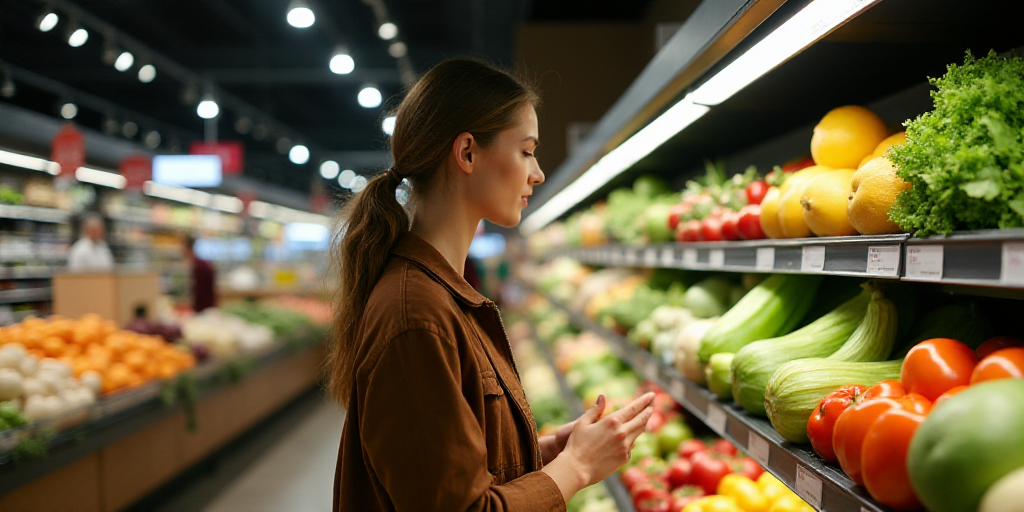The Rise of Health-Conscious Young Consumers
The food industry is undergoing a significant transformation, with young consumers driving the demand for healthy, sustainable, and functional food options. According to the Toast POS report, 46% of young adults aged 20-29 are willing to pay more for organic or sustainably sourced food. Furthermore, 36% prioritize local ingredients, and 35% choose brands that minimize waste, as reported by international studies like those from DoorDash and EatingWell.
Health, Well-being, and Environmental Awareness
Personal health, mental well-being, and ecological consciousness are no longer peripheral values but key decision-makers for millions of diners. What was once a niche trend has now become an essential requirement across restaurant menus, supermarkets, and food delivery platforms.
Mexico Joins the Trend
Although there are no precise national figures on the value of this industry, the trend is evident in urban areas. More restaurants are offering “plant-based” options, incorporating seasonal products, and openly communicating partnerships with local farmers or the use of compostable packaging.
Ana Paulina Aguilar, founder of a dark kitchen in Roma Norte, shares, “Diners ask about artisanal cheese, free-range eggs, fair-trade coffee. They’re willing to pay more for traceability.”
This growing interest is also reflected in the expansion of certified organic production in Mexico. According to the Secretariat of Agriculture and Rural Development and the National Service for Health, Sanitary and Food Quality (SENASICA), organic production remains dynamic thanks to the efforts of 48,874 producers, mainly small-scale, who cultivate 246,899 hectares across Mexico’s 32 federal entities.
José Luis Lara de la Cruz, Director of Agroalimentary Inocuidad and Organic Control at SENASICA, emphasizes that Mexico is becoming a competitive market for organic production due to coordination with producers and certifying entities.
In the past decade, 20 Organic Certification Bodies have demonstrated their technical capabilities and infrastructure for this work, collaborating with SENASICA to enforce the Organic Products Law and its guidelines. These guidelines cover specific inputs and practices, from seed selection and soil management to harvesting, processing, and marketing.
Currently, Mexico ranks second globally in organic coffee and wild harvest production and third in tropical fruit generation. Over 300 plant-based foods are certified, including coffee, pepper, banana, avocado, orange, cocoa, corn, aromatic herbs, mango, and xoconostle.
Functional and Tasty: The New Success Formula
The 2025 Food & Beverage Trends report by EatingWell highlights that functional foods—those providing benefits for digestion, cognitive health, or sleep—lead sales growth. Categories like high-fiber snacks, fermented beverages, plant-based proteins, and anti-inflammatory products are expected to grow by double digits this year.
Experts say this new way of eating doesn’t compromise taste but reinvents it. The “chaos cuisine,” blending local ingredients with global recipes, responds to the desire for pleasure with purpose.
Healthy Delivery and Mindful Moderation
Food delivery platforms also reflect this transformation. DoorDash’s trends report indicates a consistent growth in orders identified as “healthy,” “light,” or “vegetarian” over the past two years. In beverages, more than 80% of consumers request non-alcoholic or low-alcohol versions, aligning with self-care trends.
Mocktails, functional waters, adaptogen smoothies, and cold-pressed juices are the new stars of the menu, even in bars and cafes.
Sustainability: The Invisible Ingredient
Better Homes & Gardens highlights another focus in 2025: applying sustainability to the culinary experience. From biodegradable packaging to regenerative ingredients, consumers are evaluating not only what they eat but also the impact each product generates throughout its supply chain.
In this context, local commerce initiatives, waste reduction, and zero-waste cooking are not just winning awards or social media likes; they’ve become essential to compete.
Key Questions and Answers
- What is driving the change in young consumers’ food preferences? Young consumers are increasingly demanding healthy, sustainable, and functional food options, pushing the food industry, beverage sector, and delivery platforms to adapt.
- How is the Mexican food industry responding to these demands? More restaurants are offering plant-based options, using seasonal ingredients, and openly communicating partnerships with local farmers or compostable packaging.
- What are the most popular functional food trends? High-fiber snacks, fermented beverages, plant-based proteins, and anti-inflammatory products are experiencing significant growth.
- How are food delivery platforms adapting to these changes? There’s a growing demand for healthy, light, or vegetarian options on delivery platforms, along with non-alcoholic beverage choices.
- Why is sustainability becoming increasingly important in food choices? Consumers are considering the environmental impact of their food, from packaging to production methods.






